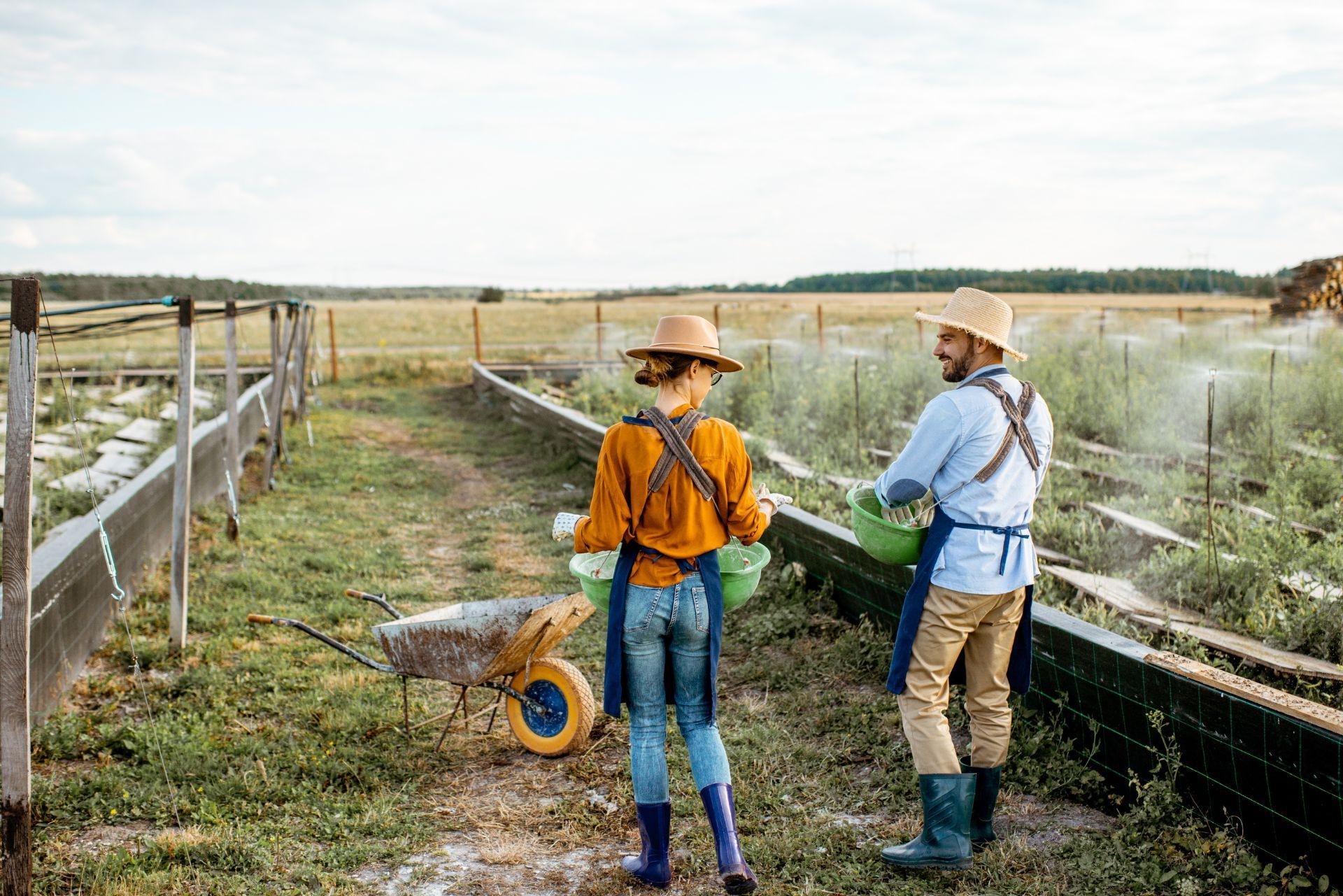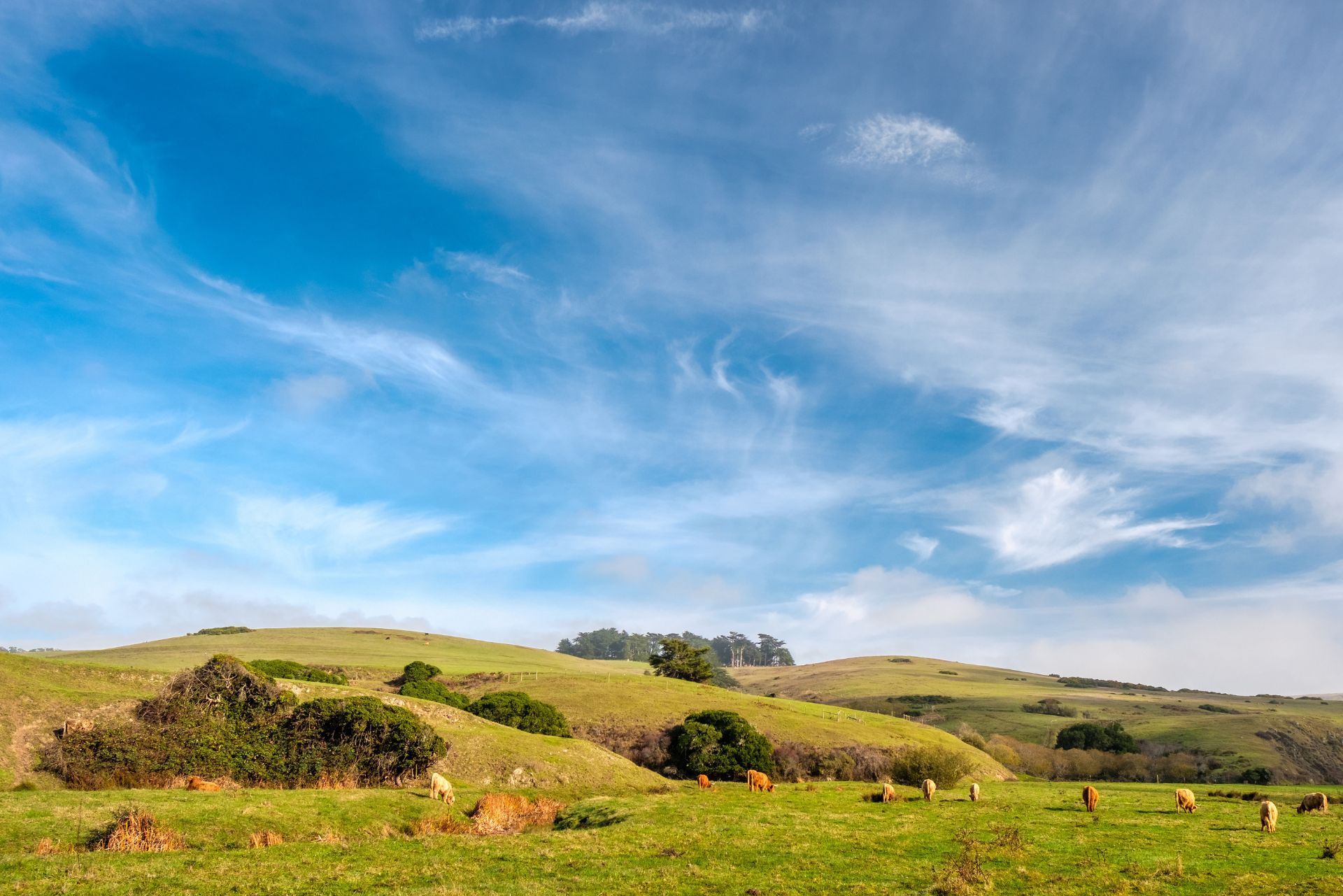
Top 3 Recommended Policies

When it comes to operating a farm or ranch in Tennessee, understanding the nuances of insurance is crucial. The agricultural landscape in Tennessee is diverse, ranging from sprawling cattle ranches to small-scale organic farms. Each operation comes with its own set of risks and challenges, which is why having the right insurance coverage is essential. This article will delve into the various aspects of farm and ranch insurance in Tennessee, providing you with everything you need to know to protect your agricultural investment.
Understanding Farm and Ranch Insurance
Farm and ranch insurance is a specialized type of coverage designed to protect agricultural operations from a range of risks. Unlike standard homeowners or business insurance, farm and ranch insurance policies are tailored to meet the unique needs of farming and ranching activities. This includes coverage for buildings, equipment, livestock, and liability protection.
Types of Coverage
Farm and ranch insurance typically includes several types of coverage. The most common types are:
- Property Coverage: This protects your physical assets, including barns, silos, and other structures, as well as machinery and equipment.
- Liability Coverage: Liability insurance is crucial for protecting against claims arising from injuries or damages that occur on your property.
- Livestock Coverage: This type of coverage is essential for ranchers, as it protects against the loss or injury of livestock due to various risks.
Understanding these types of coverage is the first step in ensuring that your farm or ranch is adequately protected. Each type of coverage can be customized to fit the specific needs of your operation. For instance, property coverage can be expanded to include coverage for crops, which is particularly important for farmers who rely heavily on seasonal yields. Additionally, many policies offer endorsements that can cover specific risks such as equipment breakdown or spoilage of perishable goods, further enhancing the protection of your investment.
Why You Need Farm and Ranch Insurance
The agricultural industry is fraught with risks, from natural disasters to equipment breakdowns. Here are a few reasons why farm and ranch insurance is vital:
- Financial Protection: In the event of a disaster, having insurance can save your business from financial ruin.
- Peace of Mind: Knowing that you are covered allows you to focus on running your farm or ranch without the constant worry of potential losses.
- Compliance with Regulations: Certain types of insurance may be required by law or lenders, making it essential for maintaining compliance.
Furthermore, the unpredictability of weather patterns can pose significant threats to agricultural operations. For example, hailstorms can devastate crops, while droughts can lead to water shortages that affect livestock health. Farm and ranch insurance not only provides financial support in these situations but also helps farmers and ranchers to implement risk management strategies. Many insurers offer resources and advice on best practices for minimizing losses, which can be invaluable in navigating the complexities of agricultural management. By investing in comprehensive coverage, you are not just safeguarding your assets; you are also ensuring the long-term sustainability of your farming or ranching operation.

Common Risks Faced by Tennessee Farmers and Ranchers
Farmers and ranchers in Tennessee face a unique set of risks due to the state's climate, geography, and agricultural practices. Understanding these risks can help in selecting the right insurance coverage.
Natural Disasters
Tennessee is no stranger to natural disasters, including floods, tornadoes, and severe storms. These events can cause significant damage to crops, livestock, and equipment. Having insurance that covers natural disasters can prevent devastating financial losses. In addition to these catastrophic events, farmers must also contend with the effects of climate change, which can lead to unpredictable weather patterns. For instance, prolonged droughts can severely impact crop yields, while excessive rainfall can lead to soil erosion and waterlogged fields. Farmers must remain vigilant and adaptable to these shifting conditions to safeguard their livelihoods.
Liability Risks
Farms and ranches often have visitors, whether they are customers, vendors, or even friends and family. This increases the risk of accidents occurring on the property. Liability insurance is essential to protect against claims that could arise from injuries or damages incurred on your farm or ranch. Additionally, the presence of livestock introduces another layer of liability, as animals can sometimes act unpredictably. Ensuring that all visitors are aware of safety protocols and maintaining clear signage can help mitigate risks. Furthermore, engaging in regular safety training for employees and family members can create a safer environment and reduce the likelihood of accidents.
Market Fluctuations
The agricultural market can be volatile, with prices for crops and livestock fluctuating based on supply and demand. While insurance cannot directly protect against market risks, certain policies, such as crop insurance, can help mitigate losses due to poor market conditions. Farmers may also consider diversifying their crops or livestock to spread risk and stabilize income. By exploring alternative markets or value-added products, such as organic produce or artisanal goods, farmers can create additional revenue streams that are less susceptible to market fluctuations. Staying informed about market trends and participating in agricultural cooperatives can also provide farmers with valuable insights and support in navigating these challenges.
Types of Farm and Ranch Insurance Policies
In Tennessee, several types of insurance policies cater specifically to the needs of farmers and ranchers. Understanding these policies can help you choose the right coverage for your operation.
Farmowners Insurance
Farmowners insurance is a comprehensive policy that combines property and liability coverage. It is designed for farmers who own their land and buildings, providing protection for both the home and the agricultural operation. This policy often includes coverage for equipment, machinery, and even personal property used in farming activities. Additionally, many farmowners insurance policies offer optional endorsements, such as coverage for farm-related business income, which can be invaluable in the event of a disaster that disrupts normal operations.
Crop Insurance
Crop insurance is essential for farmers who rely on their crops for income. This insurance helps protect against losses due to natural disasters, pests, and other factors that could impact crop yield. There are various types of crop insurance, including Actual Production History (APH) policies and Revenue Protection (RP) policies, each tailored to meet different farming needs. Farmers can also explore federal programs like the Federal Crop Insurance program, which offers subsidized premiums, making it more affordable for producers to safeguard their livelihoods against unforeseen events.
Livestock Insurance
For ranchers,
livestock insurance is crucial. This type of policy covers the loss of livestock due to accidents, disease, or natural disasters. It can be tailored to cover specific types of animals, ensuring that ranchers have the protection they need. In addition to basic coverage, ranchers may opt for specialized policies that include coverage for breeding stock or show animals, which can be particularly valuable for those involved in competitive livestock exhibitions. Furthermore, some policies may also provide coverage for veterinary expenses, ensuring that ranchers can afford the necessary care to maintain their herds' health and productivity.
Factors Influencing Insurance Costs
The cost of farm and ranch insurance in Tennessee can vary widely based on several factors. Understanding these factors can help you make informed decisions when selecting your coverage.
Type of Operation
The size and type of your farming or ranching operation will significantly influence your insurance costs. Larger operations with more assets typically require higher coverage limits, leading to increased premiums. Additionally, the specific type of farming—whether it’s livestock, crop production, or mixed operations—can also affect rates. For instance, livestock farms may face different risks compared to crop farms, necessitating tailored coverage solutions that can further impact overall costs.
Location
Your farm or ranch's location can also impact insurance costs. Areas prone to natural disasters or those with higher crime rates may face higher premiums due to increased risks. Furthermore, local regulations and zoning laws can play a role in determining coverage needs. For example, farms located near urban areas might need additional liability coverage to account for potential interactions with the public, while those in rural areas might have lower premiums due to less exposure to such risks.
Claims History
If you have a history of frequent claims, insurers may view you as a higher risk, which can lead to increased premiums. Maintaining a good claims history can help keep your insurance costs down. It’s also beneficial to implement risk management practices that can mitigate potential losses, such as investing in proper equipment maintenance or adopting safety protocols. Insurers often look favorably on proactive measures taken by farmers and ranchers, which can sometimes lead to discounts or lower rates on premiums.
Insurance Coverage Options
The specific coverage options you choose will also play a critical role in determining your insurance costs. Policies can range from basic liability coverage to comprehensive plans that include property, equipment, and crop insurance. Each additional layer of coverage adds to the overall premium, but it can also provide peace of mind in the face of unforeseen events. Understanding the nuances of each coverage type, such as the differences between actual cash value and replacement cost coverage, can help you tailor your policy to fit your unique needs while managing costs effectively.
Deductibles
The deductible you select can significantly influence your insurance premiums. Higher deductibles typically lead to lower monthly payments, but they also mean you'll pay more out-of-pocket in the event of a claim. It's essential to find a balance that suits your financial situation and risk tolerance. Evaluating your cash flow and potential exposure to losses can guide you in choosing an appropriate deductible that minimizes your insurance costs without compromising your financial security in times of need.
Choosing the Right Insurance Provider
Selecting the right insurance provider is just as important as choosing the right coverage. Here are some key considerations when evaluating potential insurers.
Experience in Agriculture
Look for insurance companies that specialize in agricultural insurance. These providers will have a better understanding of the unique risks and challenges faced by farmers and ranchers. They are more likely to offer tailored policies that address specific needs, such as crop insurance, livestock coverage, and liability protection. Additionally, an insurer with a strong agricultural focus will likely have agents who are familiar with local farming practices and regulations, which can be invaluable when navigating claims or policy adjustments.
Customer Service and Support
Good customer service is essential when dealing with insurance matters. Ensure that the provider you choose offers responsive support and assistance, especially during the claims process. A dedicated claims representative can make a significant difference, guiding you through the necessary steps and ensuring that your claim is processed efficiently. Furthermore, consider the availability of resources such as online portals or mobile apps that allow you to manage your policy, file claims, and access support at your convenience, which can greatly enhance your overall experience with the insurer.
Financial Stability
Research the financial stability of potential insurance companies. You want to choose a provider that can meet its obligations in the event of a claim. Ratings from agencies like A.M. Best can provide insight into an insurer's financial health. Additionally, you might want to look into the insurer's history of claim payouts and customer satisfaction ratings. A company with a strong track record of fulfilling its commitments can give you peace of mind, knowing that your investment is secure. It's also beneficial to read reviews from other farmers and ranchers to gauge their experiences with the insurer, as firsthand accounts can offer valuable insights into the reliability and responsiveness of the company.

How to File a Claim
Filing a claim can be a daunting process, but knowing the steps can make it easier. Here’s a general overview of how to file a claim for farm and ranch insurance in Tennessee.
Report the Incident
The first step in filing a claim is to report the incident to your insurance provider as soon as possible. Provide all relevant details, including the date, time, and nature of the incident. It's crucial to be as detailed as possible, as this initial report sets the foundation for your claim. For example, if your livestock were affected by a storm, include specifics about the weather conditions and any immediate actions you took to mitigate damage.
Document Everything
Gather evidence to support your claim. This may include photographs, receipts, and witness statements. The more documentation you provide, the stronger your claim will be. Consider creating a detailed timeline of events, which can help clarify the sequence of occurrences leading up to the incident. Additionally, if you have any prior records of maintenance or care that relate to the claim, such as veterinary records for livestock or maintenance logs for equipment, include those as well. This comprehensive approach not only strengthens your case but also demonstrates your diligence and responsibility as a policyholder.
Follow Up
Stay in contact with your insurance provider throughout the claims process. Be proactive in providing any additional information they may require and follow up on the status of your claim. Regular communication can help ensure that your claim is processed in a timely manner. If you encounter any delays or complications, don’t hesitate to ask for clarification or express your concerns. Understanding the claims timeline and what to expect can alleviate some of the stress associated with the process. Additionally, it may be beneficial to keep a record of all correspondence with your insurance company, including dates, names of representatives, and summaries of conversations, as this can be useful if any disputes arise later on.
Conclusion
Farm and ranch insurance is a critical component of protecting agricultural operations in Tennessee. With the right coverage, farmers and ranchers can safeguard their investments against a range of risks, from natural disasters to liability claims. Understanding the types of coverage available, the factors influencing costs, and how to choose the right provider can empower agricultural operators to make informed decisions about their insurance needs.
As the agricultural landscape continues to evolve, staying informed about insurance options and best practices is essential for ensuring long-term success. By taking the time to understand farm and ranch insurance, Tennessee farmers and ranchers can focus on what they do best—cultivating the land and raising livestock.
Contact Us

